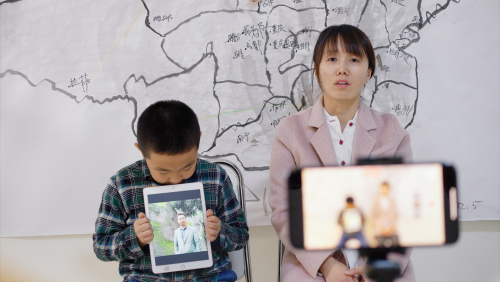10/08/2023
“One moment of darkness will not blind you forever” was written by Sophia Huang, a journalist, and activist who remains imprisoned in China. This quotation was the final sequence of ‘Total Trust,’ a documentary that investigates the effects of mass surveillance on Chinese society today.
Huang’s message highlights how despite the immense darkness and suffocation of the system, Chinese activists, and the real lives of people pose a challenge to the streamlining of the technological autocracy in China.
To an audience member, the film bore many similarities to the ‘Nosedive’ episode of Black Mirror, a television program that explores different imaginary dystopias. In the world of ‘Nosedive,’ the characters rate people after each interaction. This rating then impacts their socio-economic status and limits what they can and can’t do. In the end, the protagonist is unable to attend a friend’s wedding because her score is too low, and is ultimately deemed untrustworthy by society. Whilst this was a dystopian show, “Total Trust” is real life.
The documentary presents the social credit system in the People’s Republic of China through the three central stories of Zijuan Chen, Wensu Li and Sophia Xeuquin Huang.
Zijuan Chen and her son, Tutu, are engaged in a fight to free her husband, Weiping Chang, from prison; he was imprisoned due to his work as a human rights lawyer. There are shots of Zijuan and Tutu discussing the father’s absence. Tutu suffers the loss of his father and Zijuan buys a cardboard cut-out of the father to keep the image of her husband alive for her son. They drive to the prison where they suspect Weiping Chang is being held, they both screamed and cried outside; the son filled with hate, begging for the freedom of his father. Her father-in-law was remorseful for his son but he was critical of Zijuan’s overt protest and his patriotism and loyalty to the government remained clear. Her story presented three generations of fear, sadness and a son’s ruined childhood.
Wenzu Li’s husband, Quanzhang Wang, was released after five years of activism. He was one of the 300 lawyers and activists who were targeted by the nationwide government crackdown in 2015. The filming presents the ongoing impact of surveillance on her family: they are constantly watched, their neighbours are sent to spy on them and their son is forced to change schools every semester. Despite their emotional family reunion video going viral, the interviews with the family present the pain that transpires after five years of separation and torture. Wang describes that he does not feel joy but rather feels “empty”; lost in his role as a father, his wife criticises his desire to shower his son with love after five years of lost time. When he fights with his son, the son shouts back at him: “go back to prison,” a family fractured by estrangement.
By contrast, the story of Sophia Huang does not present a family breakdown but rather the loneliness of an activist in the People’s Republic of China. In all the shots, she is alone in her apartment with only her laptop as a companion. When she posts an article anonymously begging for the freedom of Weiping Chang, she is contacted by an authority who tracked the article to her based on the patterns of her speech and punctuation. Huang alludes to Orwell’s 1984 but, despite all, she describes her personal duty to return to China to fight for greater freedoms. Now, Huang remains arrested in prison, the ultimate state of societal isolation.
Total Trust delicately flits between the personal stories of the three protagonists and the wider context of mass surveillance and facial recognition. The documentary explains the social credit system: once you have earned a certain number of points, you can receive rewards from the government, it is all tracked through facial recognition. There are shots of people doing community service, such as cooking for the elderly in order to gain points. On the other hand, there are excerpts from national commercials which advertise that if you leave your bike in the wrong place you lose credits. When you lose a certain amount you are no longer able to enter specific places or receive special gifts. However, the system can be manipulated by authorities: Zijuan Chen was prevented from entering a shop due to low points of ‘poor health’ when she was perfectly healthy. In this case, her and her son’s mobility was limited not due to her health but due to her activism.
Through the contrast of the shots of general Chinese society with the personal narratives, the audience is reminded that the activists do not represent the general sentiment of the population. Most of society abides by the laws as their lives are dictated by the social credit system, this trust having accelerated during the pandemic.
The filmmakers make this society accessible to foreigners whilst reminding us of the human stakes of activists who are scrutinized when they question the system: Wenzu Li is now free but under strict surveillance, Sophia Xueqin Huang is imprisoned and Zijuan Chen has been exiled but still fights for her husband’s freedom.
This film left those of us in the cinema with a feeling of futuristic dread. Unlike the theoretical world of ‘Nosedive’, this technology is not fiction but is rather part of everyday life in China and thus could become the “Total Truth” anywhere depending on whose hands this technology lands in.
For more information on the lives of the activists in the film, as well as more information on surveillance, see total-truth.org.
by: Lily Sheldon



